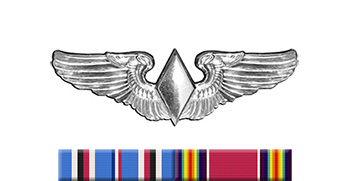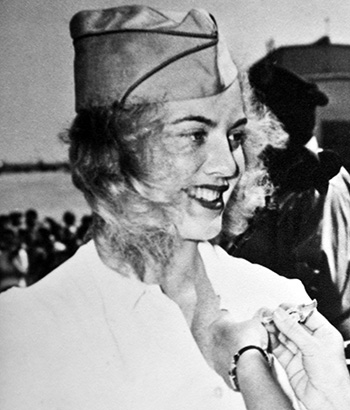
|
Betty C.G.T. Blake |
 |
|||
| Rank, Service | ||||
Pilot, Women Airforce Service Pilots, U.S. Army |
||||
| Veteran of: | ||||
|
||||
| Tribute: | ||||
Betty Guild was born on October 20, 1920, in Honolulu, Hawaii. She had her first airplane flight at age 15, and then attended the University of Hawaii, where she earned her pilot's license through the Civilian Pilot Training Program. Betty flew tourists around Hawaii until the Japanese bombed Pearl Harbor on December 7, 1941, and she then worked for the Department of the Navy in a civil service position in the office of the Captain of the navy yard at Pearl Harbor until February 1942. Betty married Robert Tackaberry, a Naval officer, in February 1942, and reported for pilot training with the Women Airforce Service Pilots (WASP) in Houston, Texas, with the first WASP training class on November 16, 1942. Betty Tackaberry graduated from WASP pilot training Class 43-W-1 at Sweetwater, Texas, on April 24, 1943, and then served with the Ferrying Command at Long Beach, California. She later attended pursuit school in Brownsville, Texas, for training in fighters, and she checked out and ferried many different aircraft types, including the P-51 Mustang, P-38 Lightning, P-47 Thunderbolt, and most of the bombers in the Army Air Forces inventory at the time. The WASPs disbanded on December 20, 1944, and she then served as a Link simulated flight instructor for Army Air Force pilot trainees until the end of the war. She divorced Robert Tackaberry in 1945, and later married George Blake, an officer in the U.S. Air Force. The WASPs were given official Military Veteran status in 1977, and they were awarded the Congressional Gold Medal on July 1, 2009, honoring their service during World War II. Betty Blake died on April 9, 2015. She was the last surviving WASP from the first pilot training class. |
||||
|
||||

